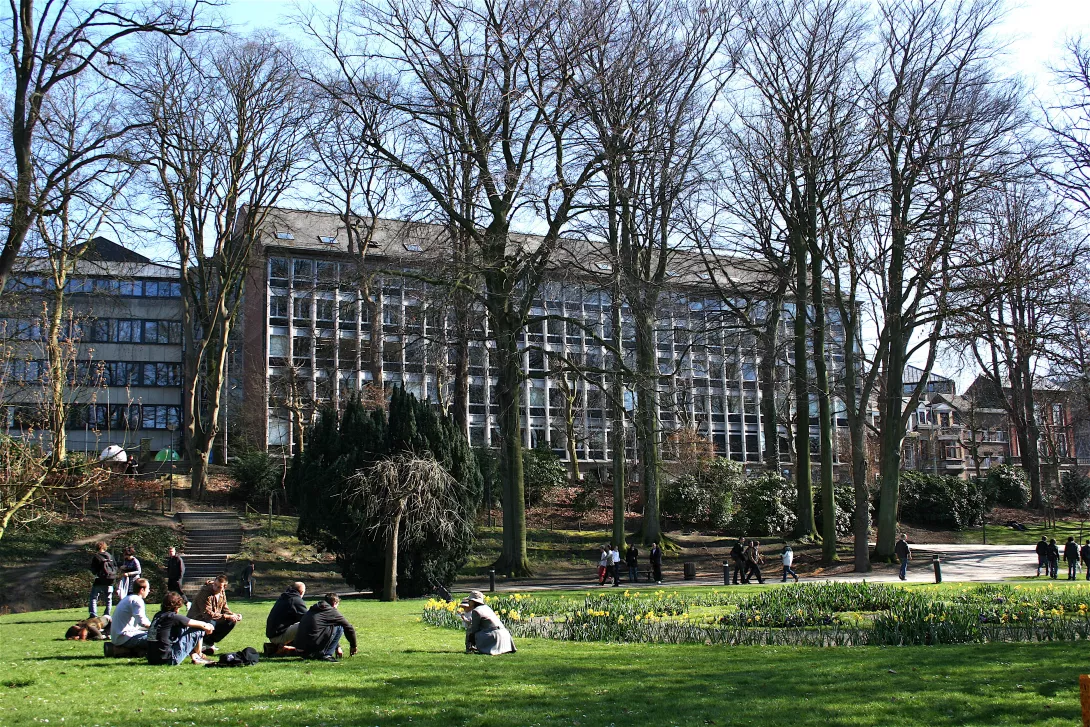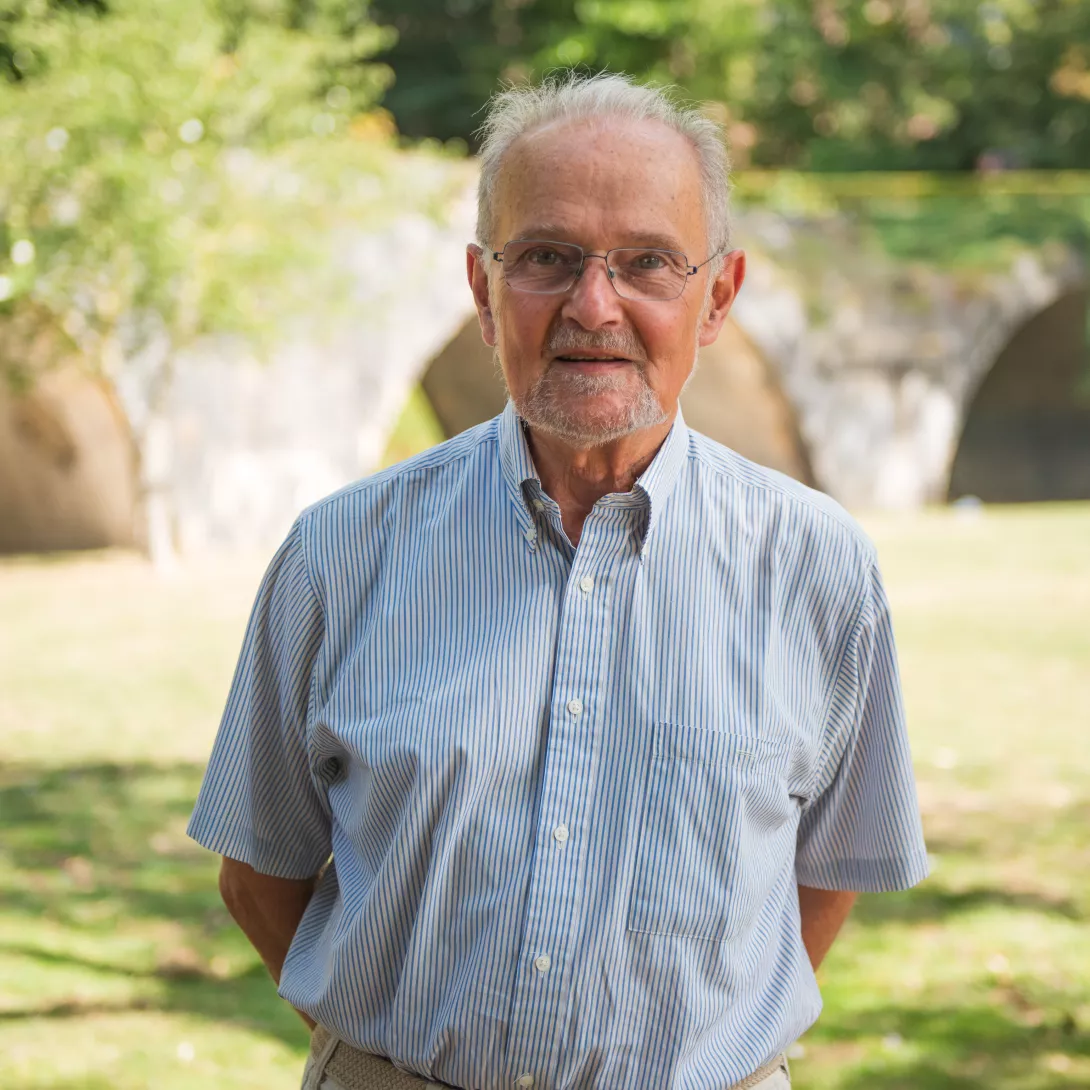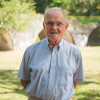
This interview was conducted for the "The day when..." section of Omalius magazine #26 (September 2022)
Tanguy de Biolley entered UNamur in 1961 and was part of the first class of graduates of the Faculty of Economic and Social Sciences and Management. Sixty years later, he confides in us with nostalgia and an unconcealed smile about his years at UNamur. Interview.
How did you hear about these studies? They did not yet exist...
I came to the UNamur to study law. A few days after I started, I met Father Joset. He had just created the bachelor’s programme in economic and social sciences and was looking for students to follow his courses. I was tempted, so I gave up law and went into economics.
What was it like to start a brand-new course?
It was wonderful! In the first year, we were 14 students, and we were spoiled. We were lucky to have a range of extremely motivated and engaging teachers. The relationship between teachers and students was excellent, which made our training absolutely splendid.
What was the pedagogy used at the time?
Our bachelor’s course programme was quite dense with lectures almost every day from 9am to 5pm. We took courses in mathematics, sociology, statistics, introduction to economics, business law... but we also had courses that were further away from economics, like biology and psychology. It was all quite theoretical. From the first degree onwards, we could choose between three options: analysis, public economics, and business economics. Our teachers were real professionals in the field. They brought practical cases to class, which was a very rich sharing of experience.
Did you do an internship?
Erasmus programmes did not yet exist, but Father Joset was a pioneer. He suggested that we do a semester's internship abroad during our third degree. I then went to the University of Rotterdam for six months to prepare my thesis. This counterbalanced the frustration of the lack of exercises in the first two years. It was a wonderful experience.

What do you remember about the Faculty?
These five years went by very quickly, I had the chance to meet some very inspiring and important people. The Faculty quickly gained a very good reputation, the first graduates had no trouble finding a job. The success of the Faculty has continued to grow year after year, attracting more and more students. What I particularly like about UNamur is the attention paid to the students by the faculty, the need to offer them the best. And when I talk about this with my grandson who finished two years of study at UNamur, I am happy to see that 60 years later he shares the same feeling as I do.
Learning by doing: more active teaching, more support
In September 2019, the Faculty implemented a bold reform of its teaching, called 'Learning by doing'. "Our ambition was to train managers, economists, political scientists and communication professionals in line with a society that increasingly values entrepreneurship, creativity and teamwork. We also wanted to offer a more active learning path with more visible links between activities," explains Alain de Crombrugghe, dean at the time of the reform. "The programme managers observed that, although the courses were complementary, there were very few links between them. They therefore sought to break down the silos to integrate the various subjects and soft skills, i.e. behavioural skills or know-how in a professional environment, more closely into the concrete projects," adds Pietro Zidda, Dean of the Faculty.
In response to these findings, the Faculty has created new programmes that gradually include active teaching methods. From the first year onwards, students carry out teamwork that mobilises disciplinary skills based on four courses, cross-disciplinary skills (e.g. structuring/synthesising/writing texts, document management, bibliographic research) and soft skills such as the ability to collaborate, to provide leadership, to motivate the team, to manage possible conflicts, to share, etc.".
They are coached by professors and assistants on these various skills.
Service Learning and hybridisation: two pedagogical innovations
Attentive to the social commitment of its students, the Faculty has included a Service Learning scheme in its "Learning by doing" reform. Students who wish to do so can obtain credits at the end of their undergraduate studies through active involvement in an association. They are then invited to analyse and present their experience before a jury. This scheme gives them the opportunity to be immersed in the realities of society, but also of the world of work, and to analyse them in the light of certain undergraduate courses. This is another form of active and integrated teaching, demanding but enriching.
Another major reform is the hybridization of the staggered timetable programme in economics and management. Launched in September 2022, this reform was designed by UNamur teachers and educationalists to develop the best pedagogical approaches. Each teacher was invited to reorganize the activities of the same course into distance and face-to-face sequences.
This leads to the choice of the most adequate methods and tools to transmit a subject and to arouse the attention of the students.

From group work to project management
"Before the reform, we used to give group work, without explaining to students how to work together, manage a free rider or establish good cooperation. Now, we accompany them to teach them how to run a project. We provide supervision for all the teams with a week-by-week programme in block 1 and increasing autonomy afterwards. We went into great detail to ensure that everything was possible and tenable," adds Pietro Zidda. Two rooms were even set up, thanks to a grant from Sowalfin, to offer everyone the best conditions
On 15 October 2022, the Faculty celebrated its anniversary with an event on the theme "The Faculty has talent".
At the age of 60, the Faculty of economic, social and management sciences does not lack in creativity. Its teaching methods are constantly evolving, but its objective remains the same: to support students so that they become responsible actors in their education, their personal development and society.
More information about the Faculty of economic, social and management sciences

